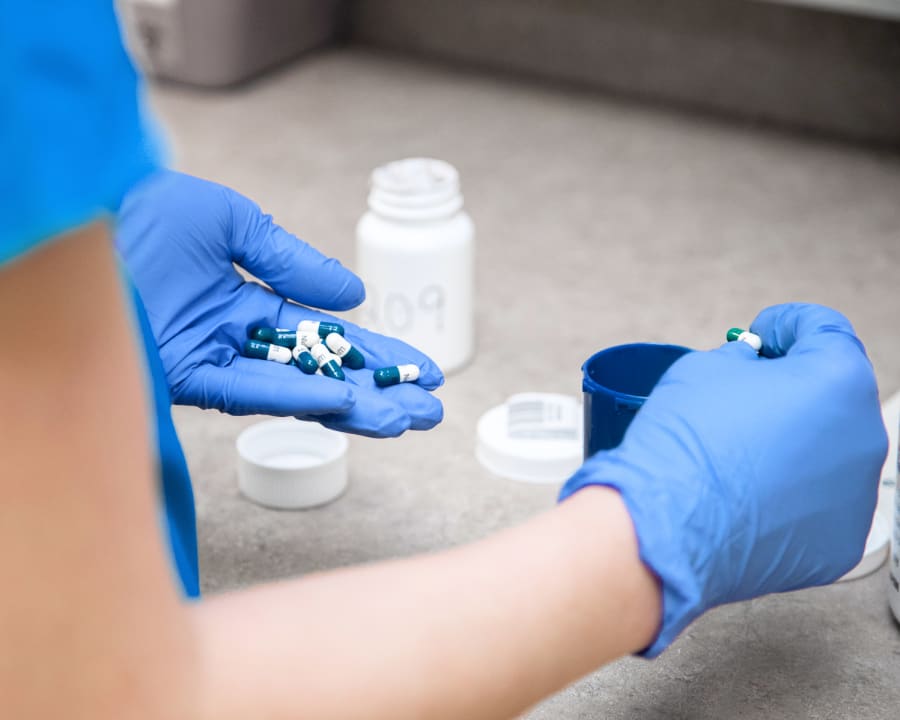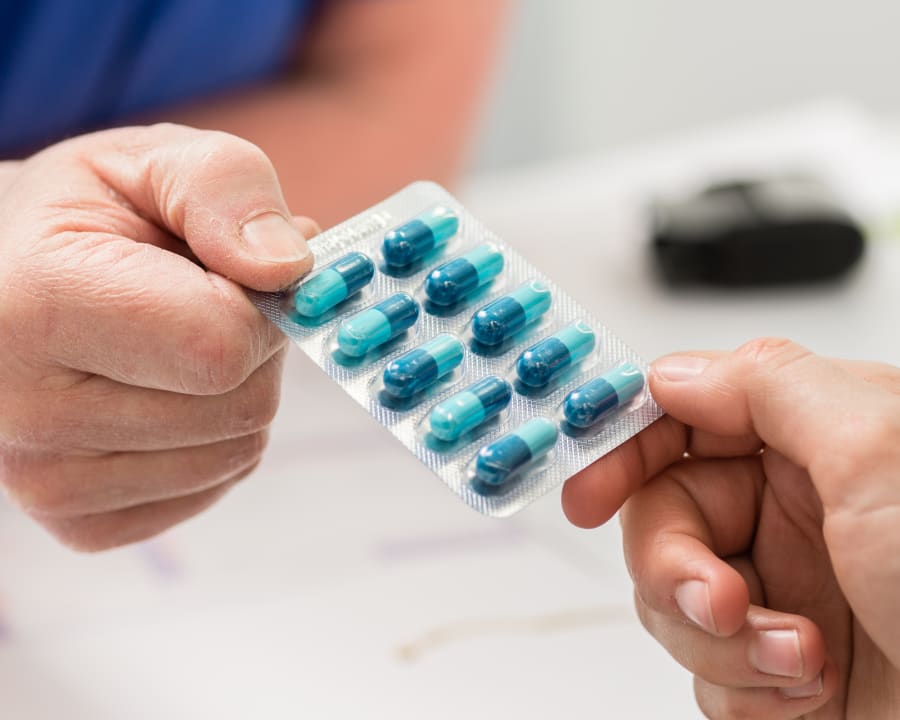
What is Veterinary Internal Medicine?
Internal medicine, true to the name, is primarily dedicated to diseases of the internal systems but may on occasion involve the skin or eyes.
Areas typically handled by internists include the nervous system, cardiovascular system, respiratory system, digestive tract, urinary tract, liver and pancreas, endocrine (hormonal) systems, hematology (blood), as well as cancer.
Examples of problems for which your veterinarian might refer your pet to an internist are seizures due to endocrine diseases, coughing or asthma, chronic upper respiratory/nasal disease, chronic vomiting or diarrhea, kidney or bladder disease, liver disease or jaundice, pancreatitis, diabetes, thyroid disorders, anemia, bleeding disorders, and evaluation of cancer. These kinds of diseases can be the most serious and frightening of problems and also the most frustrating.
Our Internal Medicine Specialist
An internal medicine specialist has advanced training including a one-year internship and three-year residency after veterinary school. Meet Dr. Kilrain, our internal medicine specialist!
Our Veterinary Internal Medicine Services in Springfield
Veterinary internal medicine specialists are skilled at the diagnosis and treatment of diseases affecting the immune systems, cardiovascular systems, urinary, gastrointestinal, endocrine systems and more in a safe and compassionate manner.
If your pet is showing symptoms of an illness that your regular veterinarians isn't able to diagnose or treat, they can refer your four-legged companion to an internal medicine specialist for more advanced care.
At The Regional Veterinary Referral Center, our internal medicine department emphasizes a comprehensive, team approach to our cases and works not only with your veterinarian but also with other specialists to ensure the best care for our patients.
Internal Medicine FAQs
After a referral from your primary care vet, an internal medicine specialist will complete a thorough physical exam of your pet to formulate a diagnostic plan and create a comprehensive treatment plan tailored to your pet’s needs.
The following are some of the most common questions we get about our specialized internal medicine services:
-
Why does my pet need a specialist?
Most of the time, your pet’s problem can be handled quickly and effectively by your regular veterinarian. But on those occasions when the answer is elusive or the condition persists it may be time to consult a veterinary specialist.
Specialists bring a greater understanding of a particular area of expertise – knowledge of the unusual, the uncommon or the rare. In addition, the specialist will have equipment not generally available.
-
How will you diagnose my pet's condition?
While we maintain the latest in diagnostic and therapeutic capabilities, we realize that the greatest asset of a specialist may be the knowledge and experience they bring to the problem. A careful evaluation of the work already completed by the primary care veterinarian as well as input from you the owner and a thorough physical exam will allow us to formulate the options.
In consultation with the primary care veterinarian, these options can be explored and the most compassionate and well-thought-out course of action can be initiated.
A sample of the procedures available to diagnose the challenging cases include both thoracic and abdominal ultrasound, CT scan, endoscopy for gastrointestinal disorders and respiratory problems, rhinoscopy for nasal disease, cystoscopy for bladder disease, bone marrow biopsies for hematological assessment, biopsy needles for less invasive biopsies of masses and some internal organs, laparoscopy for examination and biopsies of abdominal problems without open surgery.
-
What happens after the diagnosis is made?
Making the diagnosis is only half the battle. Once the diagnosis is known the next questions can be answered—such as:
- Is it treatable?
- What is the best treatment?
- What is the prognosis?
We endeavor to use the best nurse your pet has, YOU, whenever at-home treatment is possible; but when the case demands advanced treatments we are ready to respond with advanced life support, non-surgical feeding tubes for nutritional support, infusion pumps for constant infusions of vital medications, oxygen supplementation, blood gas monitoring as well as round-the-clock monitoring of other blood parameters and blood pressure all in a dedicated 24-hour critical care setting.
In either event, follow-up treatment and monitoring can be coordinated with your primary care veterinarian for the ideal level of comfort, convenience and completeness. With any luck, your furry friend’s wellness will make everyone smile. The guiding principle is to relieve the pet’s discomforts while maintaining their dignity.

